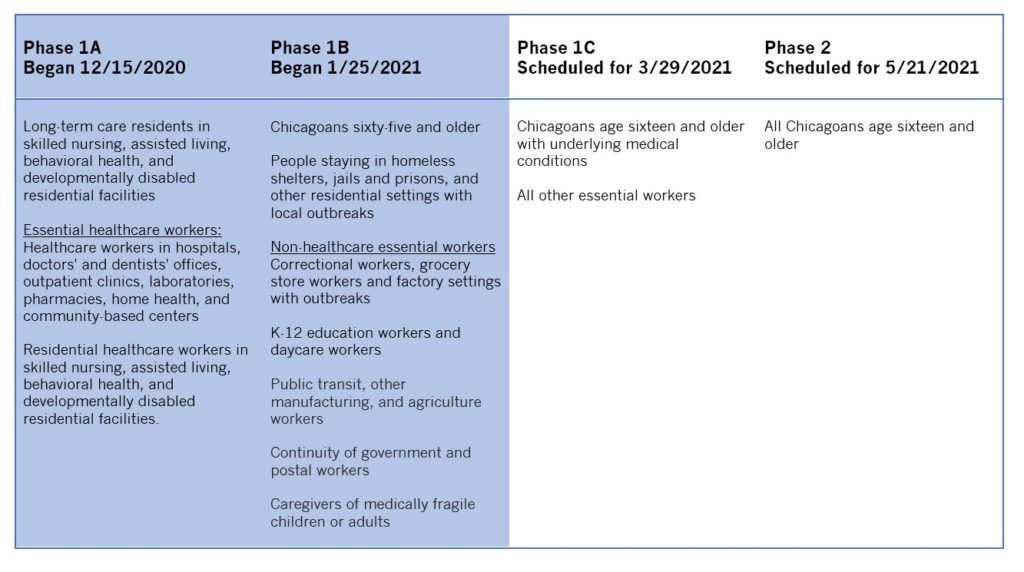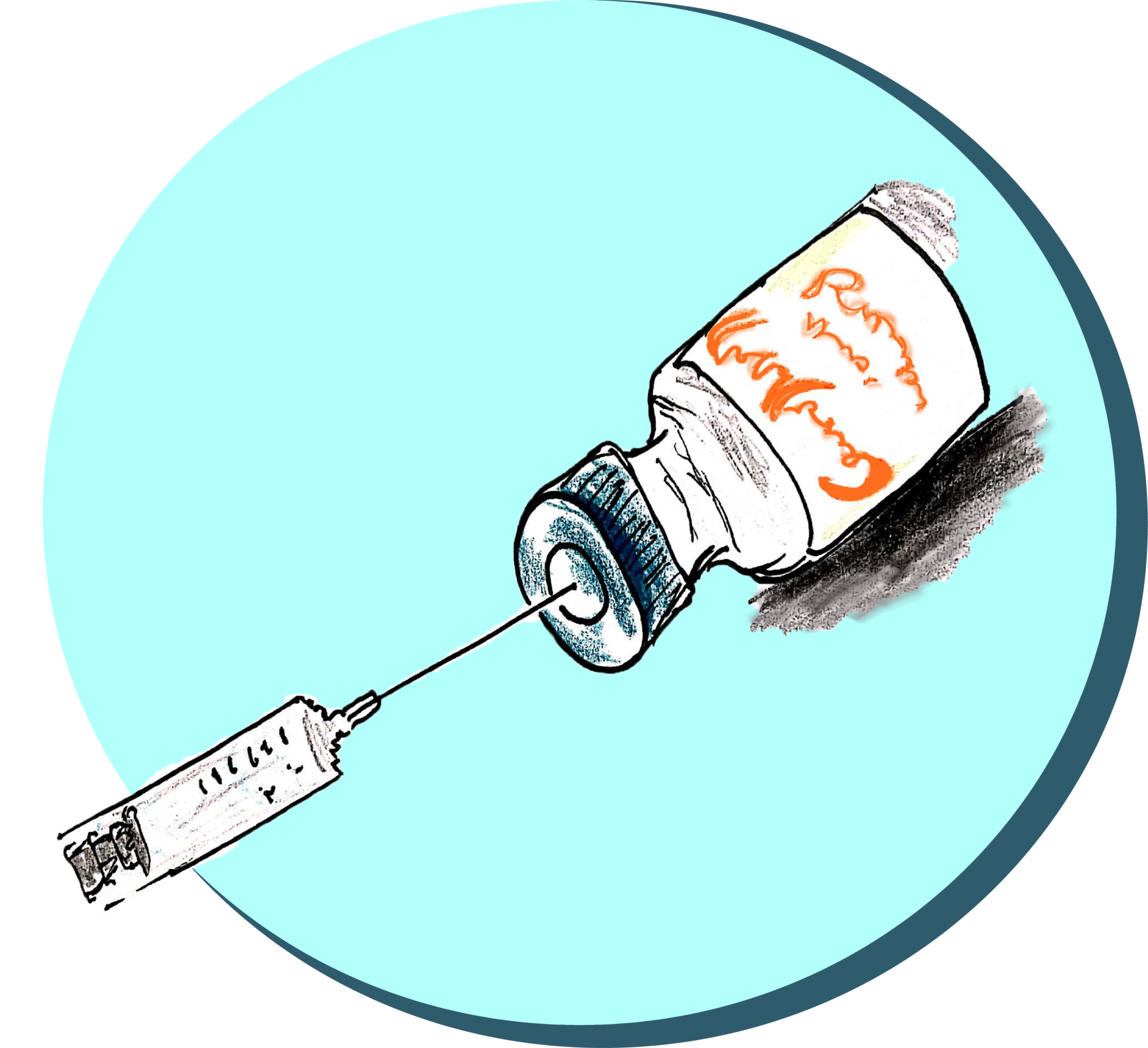
Who should get vaccinated?
Everyone who is willing and able to. Vaccinating as many people as possible will help prevent COVID-19 from spreading further. It’s an important step to stopping the pandemic.
How can Chicago residents get vaccinated?
Currently people in phases 1A and 1B qualify for vaccination in Chicago; this group includes people sixty-five and older as well as healthcare workers and other frontline essential workers (see table above for specifics). If you are in a group that is currently eligible for a vaccine, you can register to get vaccinated by appointment at one of the city’s public sites on the website zocdoc.com/vaccine. If you have a primary care provider, or if you’ve gotten other vaccines at a hospital in the past, contact them first. On February 11, the White House started an effort to also make vaccines available at certain pharmacies.
How do the vaccines work?
The two COVID-19 vaccines currently approved for use by the FDA are made by the Pfizer and Moderna pharmaceutical companies. Both vaccines are administered in two doses several weeks apart. The first dose introduces harmless pieces of a dead coronavirus to your immune system so it can develop antibodies that will recognize and kill the virus if it infects you again. The second dose, or booster, acts like a “reminder” to strengthen immune response. Johnson & Johnson has this month applied for FDA approval for a single-dose vaccine for COVID-19; if approved it should be available in March.
How do I keep track of which vaccine I’ve gotten?
When you get your first dose of a COVID-19 vaccine, the health provider who administered it should give you a health record called a vaccination card. The card includes your name, birthdate, which vaccine you got, where and when you were vaccinated, and when to come back for your second dose. If you were initially vaccinated with the Pfizer vaccine your second dose must also be from Pfizer; if you were initially vaccinated with the Moderna vaccine, your second dose must also be from Moderna.
Should I get vaccinated if I have had COVID-19 already?
Yes. Getting vaccinated can help ensure your immune system will be able to mount a strong response if you are infected with COVID again.
What if I’m pregnant?
Earlier this month Dr. Anthony Fauci, the director of the National Institute of Allergy and Infectious Disease, said that more than 20,000 pregnant women have been vaccinated against COVID-19 and there were “no red flags.” Data is still limited, but the Centers for Disease Control and Prevention (CDC) found no pregnancy risk associated with the Moderna vaccine in animal trials. If you can, talk to your OB-GYN about getting the vaccine.
I have a compromised immune system—should I get vaccinated?
If you are taking immunosuppressant medication, your immune response to the vaccine might be lower than in healthy people. But in December, Fauci said, “it would be recommended that these people do get vaccinated.” If you can, talk to your healthcare provider first.
Should I be worried about side effects or an allergic reaction to the vaccine?
Side effects from vaccinations are common—especially in the second dose of a two-shot vaccine—and typically mean your immune system has recognized the virus and is mounting a defense. Common side effects to the COVID-19 vaccines include fatigue, headache, and pain in the arm where the shot was given. Allergic reactions to COVID-19 vaccines have been extremely rare. The CDC found about one allergic reaction per 100,000 doses administered, or 0.001 percent. All of those reactions occurred within fifteen minutes of getting the vaccine.
Can the existing vaccines protect against new variants of COVID?
The Pfizer and Moderna vaccines were developed before the new variants of COVID-19 cropped up in Great Britain, South Africa, and Brazil, but early results indicate they still convey some protection against them. Two vaccines currently awaiting FDA approval, made by manufacturers Novavax and Janssen, also appear to protect against severe illness from COVID variants. Pfizer and Moderna have both reported their vaccines offer some protection against the South African variant as well; in clinical trials, AstraZeneca’s vaccine did not.
If I get vaccinated, can I still catch COVID-19?
There is a small chance of that happening, but your likelihood of developing symptomatic COVID-19 after being vaccinated is much lower. So far, the vaccines have successfully prevented anyone fully vaccinated from developing the kind of severe symptoms that could lead to hospitalization or death. But because there’s a risk you can still catch COVID-19 and pass it on even though you’ve been vaccinated, you should continue to wear a mask and practice social distancing until the pandemic is over.



